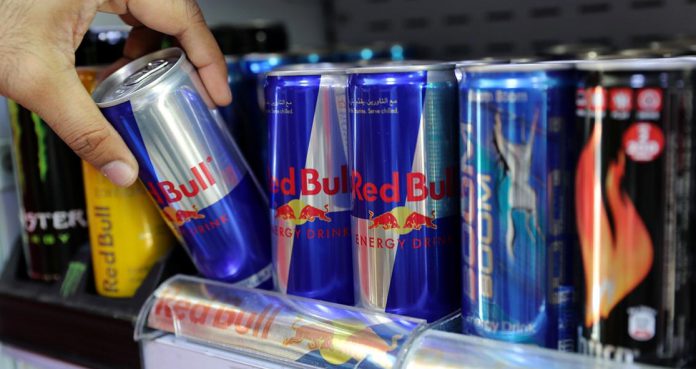According to a study published in Journal of the American Heart Association, consuming 32 ounces of energy drinks within an hour increased the risk of electrical disturbances in the heart, which persisted for as long as four hours after consuming the drinks.
The study included 34 healthy volunteers between 18 and 40 years of age. Some were assigned to drink 32 ounces of caffeinated energy drinks, and some a placebo drink, on three separate days.
The energy drinks had 304 to 320 mg of caffeine per 32 fluid ounces, while placebo contained carbonated water, lime juice, and cherry flavoring. The participants swallowed the beverages with a 60-minute period; however, no faster that one 16-ounce serving per 30 minutes. This means they were not chugging two drinks back to back.
The investigators took electrocardiograms (ECG) to measure electrical activity in the participants’ hearts. They measured the QT interval, the length of time ventricles take in the heart to prepare to beat again. They also measured their blood pressure. The measurements were taken at the beginning of the study, and every 30 minutes for four hours after the beverages were drunk.
The participants who had the energy drinks were found to have higher QT interval and blood pressure. Too short or too long QT intervals can be life-threatening because they cause heart arrhythmias. Also, elevated blood pressure can increase the risk of a stroke, heart failure, and aneurysm by damaging the blood vessels as well as the heart.
Some experts said that more research is needed because the study was conducted on a small scale and featured only healthy individuals, and it did not consider other factors, such as missing energy drinks with alcohol. The study also did not look at the long-term effects of consuming energy drinks. However, lead study author Sachin Shah wrote that the study findings raise red flags.
He said, “The public should be aware of the impact of energy drinks on their body, especially if they have other underlying health conditions. Healthcare professionals should advise certain patient populations, for example, people with underlying congenital or acquired long QT syndrome or high blood pressure, to limit or monitor their consumption.”
Meanwhile, the American Beverage Association defended the safety of energy drinks and stated, “Energy drinks have been enjoyed by millions of people around the world for more than 30 years and are recognized by government food safety agencies worldwide… as safe for consumption… America’s leading energy drink manufacturers voluntarily go beyond all federal requirements when it comes to responsible labeling and marketing practices, including displaying total caffeine content from all sources and advisory statements that the drinks are not recommended for children, pregnant or nursing women, or those sensitive to caffeine.”
According to a 2017 Frontiers in Public Health review, energy drinks are associated with risk-seeking behavior, mental health issues, elevated blood pressure, dental issues, obesity, and kidney damage.
Some researchers said that it is the combination of sweeteners and stimulants that appears to be problematic, instead of the caffeine or sugar alone.
In March, a new report from the American Heart Association’s journal, Circulation, found that women are more susceptible to the risks of cardiovascular disease due to drinking more sweetened beverages in a day.
Last fall, another study from the American Heart Association found that drinking just one energy drink can cause narrowing of the blood vessels approximately 90 minutes later, thereby increasing the risk of blockages that can cause a heart attack and a stroke. According to a report, in 2103, the global energy drink market was worth $39 billion, and by 2021, it is expected to hit more than $60 billion.























